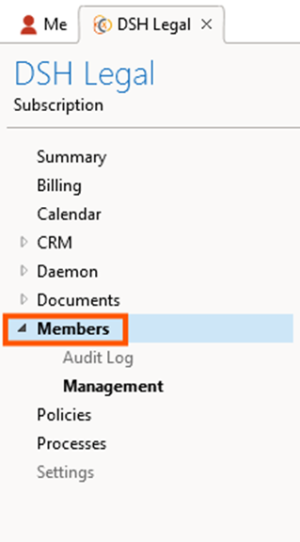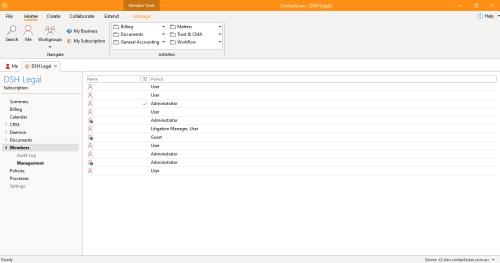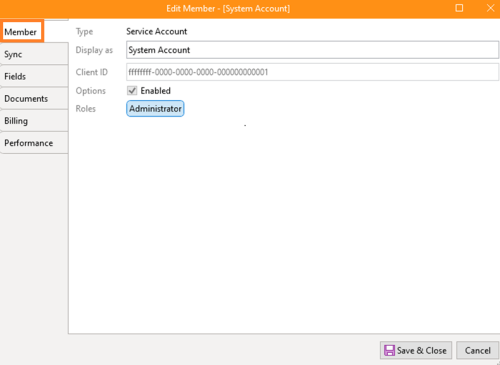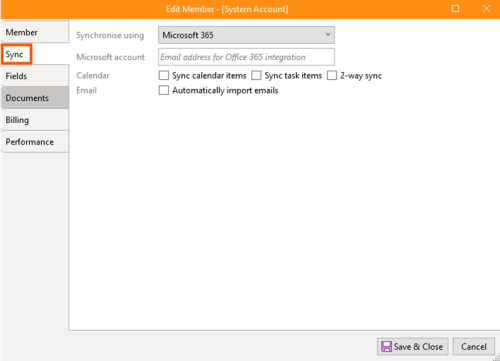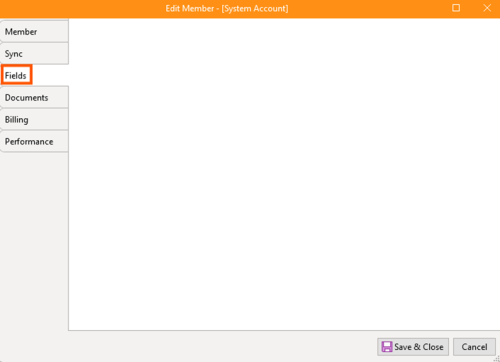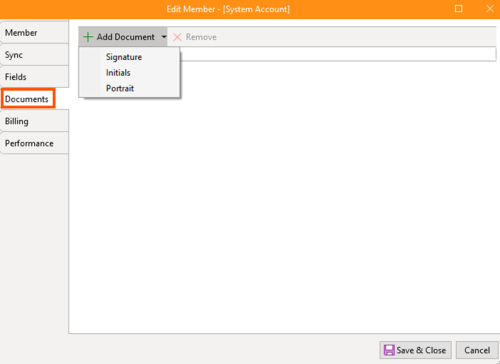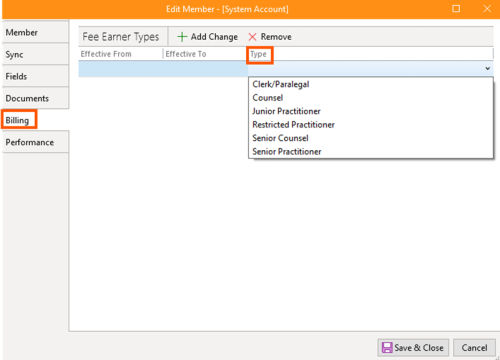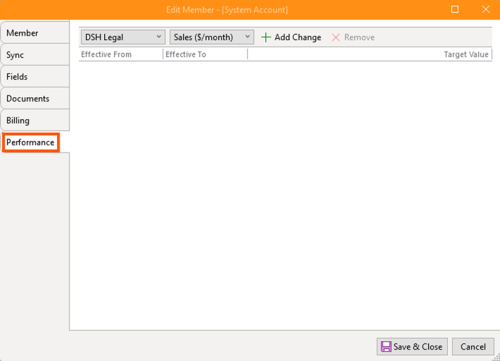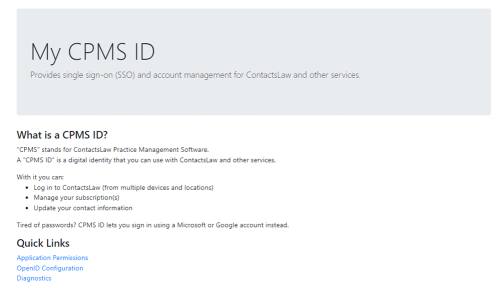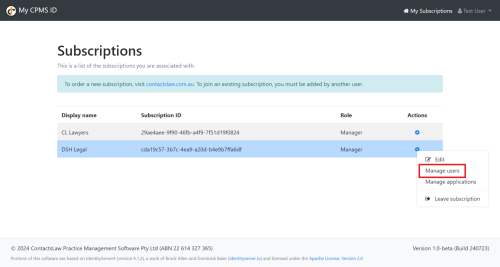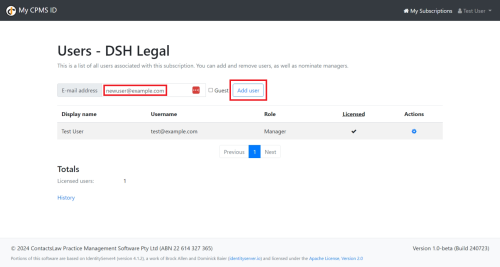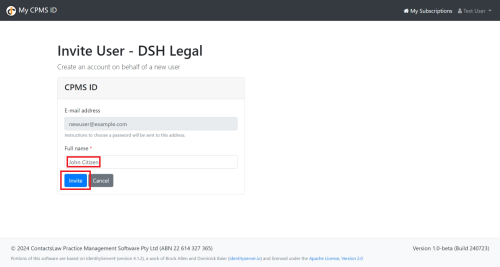How-To:Member
In ContactsLaw, "members" refer to the system's users. A member can either be an interactive user who logs into the system or a service account, which is an external application or integration interacting with the system without representing a specific individual.
1. Getting Started
Navigate to the ribbon group and click on My Subscription.
Proceed to the pane and click Members.
In the grid, you will see a list of all active members who currently have access to the software. Select the desired member.
2. Member Properties
The Member section has six (6) parts: Member, Sync, Fields, Documents, Billing, and Performance.
- Type: There are two (2) types of members: Service Accounts and Interactive Users. A service account interacts with the system directly, while an interactive user is always linked to an associated contact.
- Display: Refers to the name of the member.
- Client ID: The identification ID within the system.
- Roles: Determines the member's access level within the system. Common roles include Administrator, User, and Guest.
Sync - Sync refers to calendar synchronisation, depending on the individual subscription setup.
- Synchronise using: ContactsLaw supports synchronisation via Microsoft 365.
- Microsoft account: The email address associated with the Microsoft 365 account.
- Calendar: Options for syncing calendar or task items, or setting up a two-way sync.
- Email: A scheduled job can automatically import tagged emails into the system.
Fields - Refers to custom fields set up for matters and contacts, enabling custom profile fields for members.
Documents - This section contains various documents related to members, such as signatures, initials, and portraits.
Billing- Billing refers to time recording rates used for each member. Members are assigned a "Fiona type," which is configured at the subscription level.
Performance -This section involves setting performance targets used in performance management and reporting.
3. Manage Member
Member management is divided into three (3) categories:
- New: Create members manually, both interactive users and service accounts. This option is only available to members with administrator roles.
- View: This option can help you know who have been marked inactive members in the system.
- Actions: This option refers to editing profile fields of the members which is only limited to members whose role is administrator.
4. Adding New Member
The below guide will explain the key steps in adding new members into the contacts law subscription:
- Option 1: Go to My CPMS ID
- Proceed to My Subscriptions.
- Go to DSH Legal, right click and choose Manage Users.
- Then you add a New User by adding an email address.
- Option 2: Go back to the ContactsLaw App, navigate to the ribbon group and choose Interactive User or Service Account.
5. Final Steps
Before you save the new member that you created, a CPMS ID is required.
- If the process is through option 1, an invite will be sent to your email address.
- For the option 2, the process of having the CPMS ID number, see separate article about CPMS ID.



